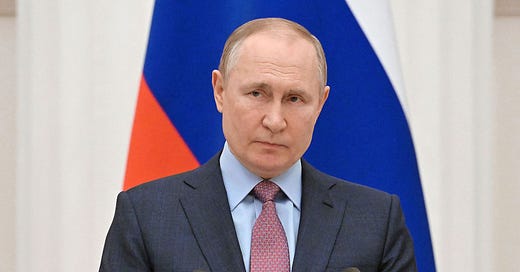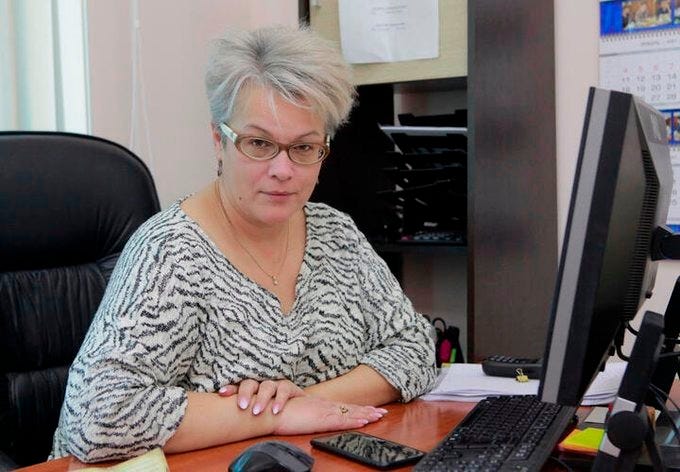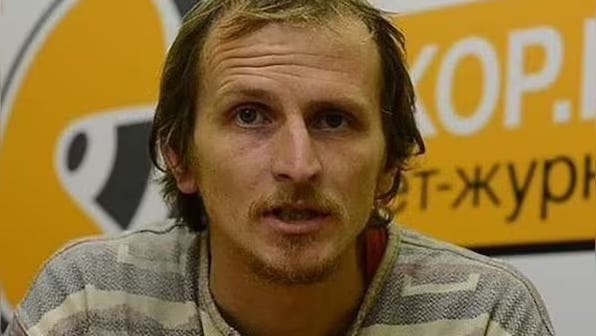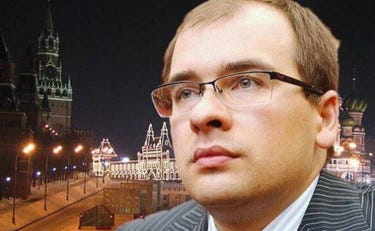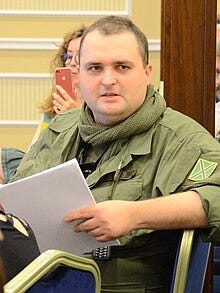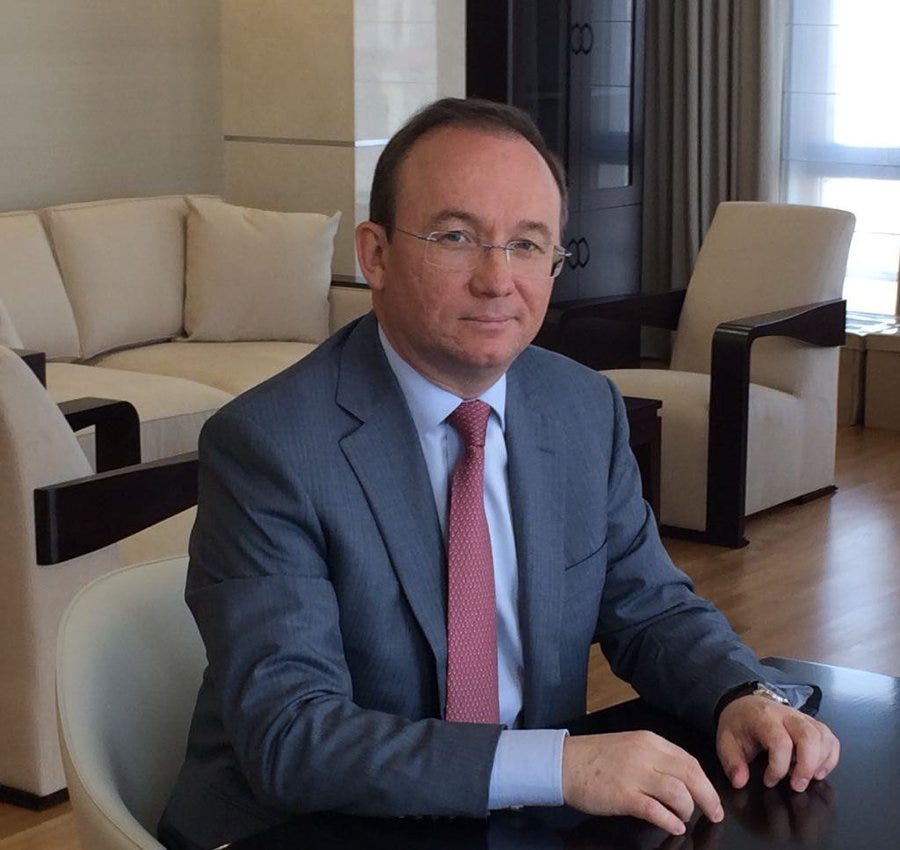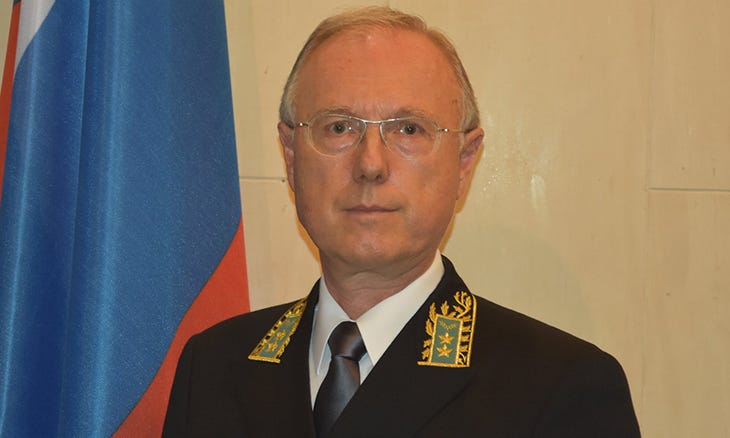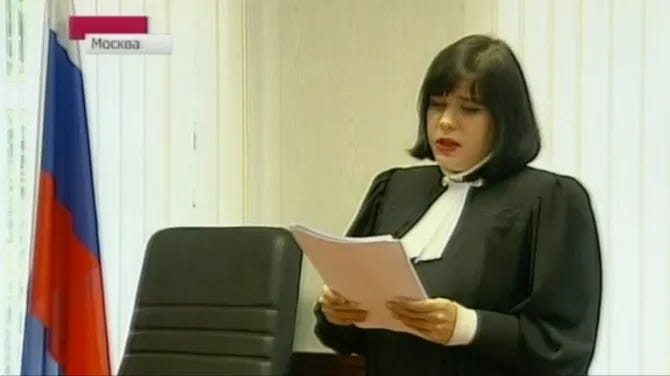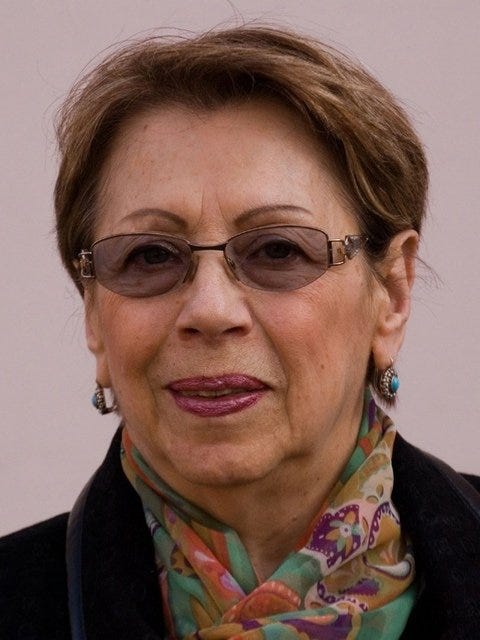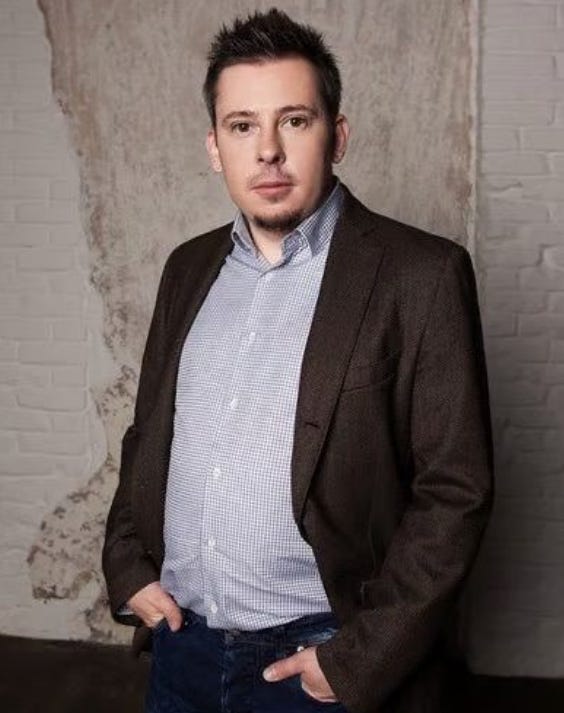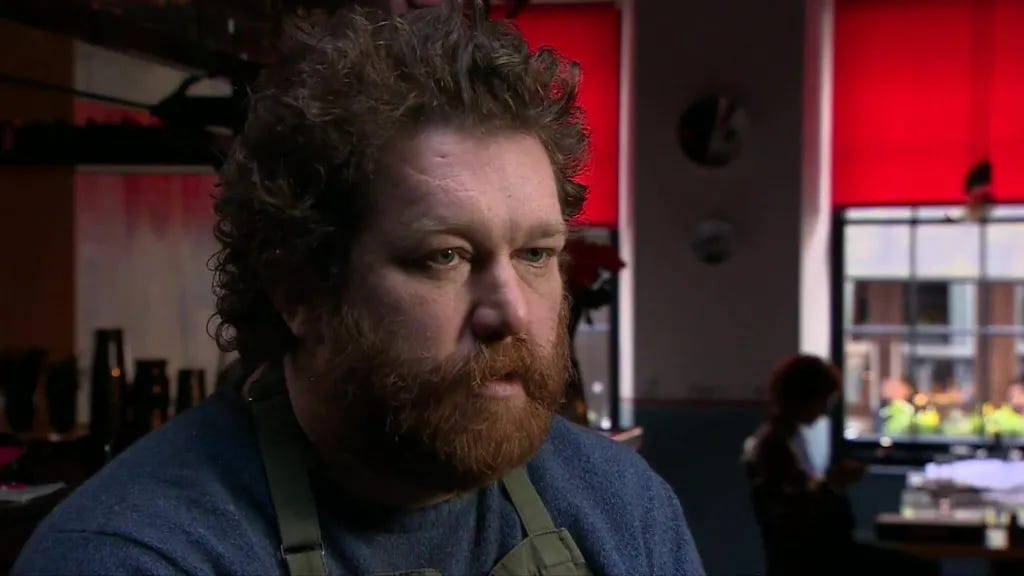As 2024 ended, so did the final chapter on the lives of several high-profile Russians, many of whom passed under what can only be described as unusual circumstances. The macabre tally for 2024 features a similarly diverse array of individuals as in prior years, spanning government officials, oligarchs, journalists, and judges. The causes of death vary – from "suicide" and "accidents" to the mysterious "sudden Russian death syndrome,” however one commonality unites them all: their ties to Vladimir Putin.
Read on, as we delve into a chronological overview of these deaths and the stories behind them.
Zoya Konovalova
January 5, 2024
On January 5, 2024, Zoya Konovalova, a prominent figure in Russian state media, was found dead in a suspected poisoning incident. Konovalova, 48, served as the editor-in-chief of the Kuban State Television and Radio Broadcasting Company, a position that placed her at the forefront of Russian President Vladimir Putin's state-controlled media apparatus. Her body was discovered alongside that of her ex-husband, 52, at a private residence in the Krasnodar region.
The news was confirmed by the television channel itself, which released a statement mourning her loss: "The head of the Internet group of the State Television and Radio Broadcasting Company Kuban, Zoya Konovalova, has died. Our colleague was 48 years old." Russian state-run news agency RIA Novosti reported that no visible injuries were found on the bodies, and the suspected cause of death was poisoning.
Konovalova began her career in Moscow before relocating to the Krasnodar Territory in 2003. Over the past year, she had been leading the digital editorial team at the State Television and Radio Broadcasting Company Kuban.
Konovalova’s death comes just days after another Russian journalist, Alexander Rybin, was found dead in the Rostov region near the Ukrainian border.
Alexander Rybin
January 13, 2024
On January 13, 2024, Alexander Rybin, a journalist who vowed to unveil details of "gigantic corruption" in Russian-occupied Mariupol, was found dead near a roadside. The circumstances surrounding his death remain uncertain, raising questions about whether foul play was involved.
Rybin, 39, was discovered near a highway approximately 130 miles outside the Ukrainian city of Mariupol, where he had been reporting on the aftermath of the Russian invasion. The official cause of death, according to an autopsy, was cardiomyopathy, a heart condition, as reported by Russian state media. However, many believe his death could be linked to his recent outspoken criticism of corruption among officials in the region.
In the weeks leading up to his death, Rybin had shifted from being described as a pro-Kremlin journalist to a vocal critic of regional authorities. He highlighted corruption as a significant factor behind the slow rebuilding efforts in Mariupol and the Donetsk region, which were devastated by intense urban combat in 2022. In one of his final reports, Rybin described the city as having "gigantic money" and "gigantic opportunities for corruption."
Rybin had pledged to release more detailed findings about corruption in Mariupol, utilizing the left-wing online platform Rabkor for his broadcasts. Rebekah Koffler, a strategic military intelligence analyst and author of Putin’s Playbook, pointed out that Rybin’s death fits a pattern. "Scores of Russian journalists have ended up dead under mysterious circumstances after criticizing the regime or Vladimir Putin directly," Koffler told Fox News Digital. She noted that targeted assassinations, or "wet affairs," are a well-documented tradecraft of Russian intelligence, designed to eliminate dissent while making deaths appear natural.
Petro Andriushchenko, an advisor to Mariupol’s mayor, tied Rybin’s death to his corruption allegations, suggesting a possible link to Russian officials in the city. Adding to the speculation, reports highlighted that Rybin’s bank cards and valuables were untouched, a detail often associated with calculated killings.
Ivan Sechin
February 5, 2024
On February 5, 2024, Ivan Sechin, the 35-year-old son of Rosneft CEO and close Putin ally Igor Sechin, passed away suddenly under mysterious circumstances. The younger Sechin’s death was not publicly announced and only came to light when Putin critic Leonid Nevzlin revealed on social media that Ivan’s name had been added to Russia’s national registry of inheritance cases, with the date of death listed as February 5.
Ivan had been a key figure at Rosneft, working alongside his father since 2014. In 2015, at just 26 years old, he was awarded the prestigious For Merit to the Fatherland medal by Vladimir Putin for his "many years of conscientious work." Despite his prominent role in one of Russia’s largest state-owned enterprises, his death was kept out of the public eye, raising questions about the circumstances and the secrecy surrounding it.
According to reports from the VChK-OGPU Telegram channel, which is believed to have ties to Russian security services, Ivan Sechin died at a mansion in the Moscow region. The channel, citing his wife, detailed how Ivan had complained of sudden pain during the night, which he thought was kidney related. His security team reportedly called for an ambulance after he began having difficulty breathing and subsequently lost consciousness. However, medics arrived nearly two hours later, by which time Ivan had already passed away.
The official cause of death was reportedly a blood clot. However, Igor Sechin is said to have prohibited any formal investigation into his son’s death, instead directing Rosneft’s internal security service to conduct an inquiry.
Alexei Navalny
February 16, 2024
On February 16, 2024, Alexei Navalny, the most prominent political rival of Russian President Vladimir Putin, died at the IK-3 penal colony, a remote Arctic facility about 1,900 kilometers northeast of Moscow. Navalny, age 47, who was serving a three-decade prison sentence, had long been a thorn in the side of Russia’s leadership due to his outspoken criticism and anti-corruption activism.
The Federal Penitentiary Service of the Yamalo-Nenets Autonomous District announced Navalny’s death at 2:19 p.m. Moscow time. According to their statement, Navalny felt unwell after a walk and lost consciousness shortly afterward. Despite immediate medical intervention and resuscitation attempts, he could not be revived. While the official cause of death is still under investigation, early reports suggest “sudden death syndrome” or a blood clot.
Navalny’s death notice, issued to his 69-year-old mother Lyudmila, listed the time of death as 2:17 p.m. local time. His spokesperson, Kira Yarmysh, revealed that the cause of death provided to his family was vague, and his body reportedly showed signs of bruising consistent with seizures and resuscitation attempts.
Witness accounts from fellow prisoners describe a "strange commotion" at the penal colony on the night before Navalny’s death. Guards reportedly conducted intensified evening checks and a total search of the barracks the following morning, confiscating personal items. A special investigative team from Moscow was seen arriving shortly after Navalny’s passing, adding to the mystery surrounding his death.
Navalny was no stranger to harsh treatment. A frequent target of punishment, he was often placed in solitary confinement for trivial offenses. Despite the brutal conditions, he maintained his characteristic wit and resilience, frequently mocking the extreme temperatures and conditions of the “Polar Wolf” colony.
Navalny’s founded the Anti-Corruption Foundation (FBK) in 2011, which exposed high-profile corruption within Russia’s ruling elite. Navalny’s investigative work gained international attention, particularly his labeling of the United Russia party as a "party of crooks and thieves."
Over the years, Navalny’s activism came at great personal cost. He survived an assassination attempt in 2020, when he was poisoned with a nerve agent, and later accused Putin of orchestrating the attack. After recovering in Germany, Navalny returned to Russia in 2021, where he was immediately detained, sparking mass protests nationwide. Subsequent trials added years to his prison sentence, widely regarded as politically motivated to silence his dissent. In December 2023, Navalny’s sudden transfer to the Arctic penal colony raised alarm among his supporters, who feared for his safety.
Andrey Morozov
February 21, 2024
On February 21, 2024, Andrey Morozov, a 44-year-old Russian blogger and military officer, allegedly took his own life. His death was confirmed by his lawyer Maxim Pashkov and other close associates. Known by the nom de guerre "Murz," Morozov was a controversial figure who supported Russia's war efforts in Ukraine while openly criticizing Russian Federation military command. His death highlights the growing tensions within Russia’s ultra-nationalist circles and the challenges faced by war bloggers who provide uncensored accounts of the conflict.
Morozov had a following of over 100,000 on his Telegram channel where he shared detailed reports on the conflict His most notable post came three days before his death on February 18, when he estimated devastating losses during Russia's capture of Avdiivka. According to Morozov, 16,000 Russian soldiers were killed, missing, or seriously wounded, and 300 tanks were destroyed during the four-month long battle. He compared these losses to an estimated 5,000-7,000 Ukrainian casualties, emphasizing the outdated tactics and wanton disregard for soldiers’ lives that characterize Russian command.
The post drew widespread backlash from other pro-Kremlin voices, including prominent propagandists and "Z" bloggers, fervent supporters of Russia’s war of aggression against Ukraine. Under intense pressure from military officials, Morozov deleted the post on February 20, citing threats to his affiliated units' equipment and ammunition supplies.
In his final posts, Morozov expressed deep despair over the state of Russia's military leadership, accusing them of negligence and indifference to soldiers’ needs.
Vitaly Robertus
March 13, 2024
On March 13, 2024, Vitaly Robertus, vice president of Russia's second-largest oil producer, Lukoil, was found dead in his Moscow office in an apparent suicide. Reports from Russian Telegram channels, including ASTRA and Baza, indicated that Robertus, 54, was discovered hanged. This marks the fourth death of a senior Lukoil executive since the onset of Russia's war in Ukraine in 2022.
Lukoil released a statement describing Robertus’s passing as "sudden" without specifying a cause of death. Despite the official narrative, questions linger. ASTRA reported Robertus had complained of headaches before his death, while sources cited by VChK-OGPU claimed he was in good health, with no chronic illnesses or personal issues. The timing of his death has fueled speculation, especially given Lukoil’s vocal opposition to Russia’s invasion of Ukraine. In March 2022, the company’s board expressed "deep concerns" about the conflict, a rare public dissent in Russia.
Robertus’s death is part of a pattern among Lukoil executives. In May 2022, Alexander Subbotin, a former top manager, died under strange circumstances at a shaman’s home. In September 2022, Chairman Ravil Maganov “fell” from a hospital window under unexplained conditions. In October 2023, Board Chairman Vladimir Nekrasov reportedly succumbed to acute heart failure in yet another case of “sudden death syndrome.”
Aleksandr Surikov
May 11, 2024
On May 11, 2024, Aleksandr Surikov, Russia’s ambassador to Mozambique, was found dead at his official residence in Maputo. His body was later transferred to the morgue at Maputo Central Hospital, Mozambique's largest healthcare facility. However, the circumstances surrounding his sudden death remain unclear due to Russia's refusal to authorize any examination or autopsy of the body.
According to the Mozambican Police (PRM), Russian officials, including Consul Yuri Doroshenkov, prohibited any forensic examination of Surikov’s remains, instructing authorities not to touch the body. While police were allowed to take photographs of the deceased, no further investigation into the cause of death could be conducted. The Russian foreign ministry later reported a “preliminary” assumption of a stroke, but this claim has not been substantiated.
Despite his years of service, there has been no public obituary or detailed acknowledgment of his passing from the Russian government or foreign ministry. Instead, reports about his death in Russian state media were brief and uniform, offering little clarity on the situation.
Mozambican authorities, including the Ministry of Foreign Affairs and Cooperation, confirmed their coordination with the Russian Embassy to manage the situation and ensure the transfer of Surikov’s body to Russia. However, the lack of an autopsy and the embassy’s strict control over the investigation have fueled speculation about the circumstances of his death.
Natalia Larina
June 5, 2024
On June 5, 2024, Natalia Larina, a retired Russian judge known for presiding over high-profile political cases, was found dead outside her apartment block in southeast Moscow. The 50-year-old’s death has been reported as a suspected suicide after she allegedly “fell” from a window.
Reports from the Baza Telegram channel detailed a recent financial scam she had fallen victim to in mid-May. Scammers impersonating her former boss and Russian authorities convinced her to transfer over 2 million rubles (approximately $20,000) to a so-called "safe account," claiming the money was being targeted for theft to fund Ukraine’s armed forces. Realizing she had been duped, Larina reported the incident to the police.
Larina had retired six months earlier after a 15-year tenure at Moscow's Tagansky Court. Throughout her career, she presided over several significant cases, including the 2006 "Tagansky Case," which curtailed the activities of the National Bolshevik Party. She also oversaw the 2015 trial of performance artist Pyotr Pavlensky, who set fire to the headquarters of Russia’s intelligence agency. Additionally, Larina ruled in cases involving heinous crimes, such as the 2011 conviction of a Transport Ministry official for rape and the 2019 sentencing of a serial poisoner in Moscow.
Dzianis Sidarenka
June 24, 2024
On June 24, 2024, Belarusian diplomat Dzianis Sidarenka, who had served as the Russian satellite country’s ambassador to Germany until his dismissal earlier that year, passed away under mysterious circumstances. He was 48 years old. While the Belarusian Foreign Ministry confirmed his death after reports from independent media outlets, they offered no details about the cause.
Sidarenka’s death has raised suspicions, particularly regarding the pressure he faced from Belarus's KGB secret service. Some sources claim that Sidarenka died after throwing himself from a high-rise building in Minsk, following a grueling interrogation by the KGB. Other sources suggest that a heart attack may have been the cause.
Sidarenka’s career in diplomacy was marked by his commitment to fostering better relations between Belarus and the European Union. Despite the oppressive regime of Belarus’s puppet dictator President Alexander Lukashenko, Sidarenka continued to serve his country as ambassador, although his stance on democracy and European ties often put him at odds with the authoritarian government. He was dismissed from his post as ambassador in March 2024 after eight years in Germany, likely because of his pro-European views, which contrasted sharply with Lukashenko and Putin’s policies. Sidarenka's death shares similarities with the deaths of others who criticized the Belarusian and Russian governments.
Valentina Bondarenko
July 23, 2024
On July 23, 2024, 82-year-old Russian economist Valentina Bondarenko died after “falling” from the window of her Moscow apartment, according to Russian news agency Tass. Bondarenko, a prominent researcher at the Institute of Economics of the Russian Academy of Sciences, had been studying socio-economic transformations since 1988.
Authorities quickly ruled out foul play, with an anonymous source stating that her injuries were “incompatible with life.” However, her death adds to the growing list of high-profile Russians who have met a similar fate since the war in Ukraine began.
Magomed Khandayev
July 9, 2024
The sudden death of General Magomed Khandayev, the head of the State Expertise Department at the Russian Ministry of Defense, has raised questions – especially given his key role in a growing corruption scandal within the Ministry. Khandayev, 61, died on July 9, 2024, with little information about the cause of his death. His passing followed a series of high-profile arrests and investigations into corruption involving senior military officials in Russia.
Khandayev had a distinguished military career, graduating from prestigious institutions like the Samarkand Higher Military Automobile Command School and the Military Academy of the General Staff. He worked for the Ministry of Defense on construction projects, and in June 2023, he was appointed as the head of the State Expertise Department, overseeing military infrastructure and defense construction projects across Russia. He held multiple state honors, including the Order of Alexander Nevsky.
Reports suggest that Khandayev’s death may not have been an accident, with rumors circulating that his sudden demise could be linked to his knowledge of high-level corruption within the Ministry of Defense. Khandayev was reportedly closely associated with former Deputy Defense Minister Timur Ivanov, who is currently under arrest for his alleged involvement in a massive multi-million dollar corruption scheme. Khandayev was seen as an important witness in this ongoing investigation; his death raises suspicions that it may have been an effort to silence him.
The Russian Ministry of Defense has been undergoing significant personnel changes, with several high-ranking officials arrested in recent months as part of a wider purge amid corruption allegations.
Georgy Chibisov
July 27, 2024
Georgy Chibisov, a top Russian financier and Marketing Director of the Moscow Exchange, drowned after falling from a yacht. The 44-year-old was attending a bachelor party aboard a cruise ship on the Moskva River when the incident occurred.
His wife reported him missing before authorities discovered his body the following day. According to Russian media, other attendees initially did not consider him missing. Reports suggest Chibisov attempted to use the diving platform alone, violating safety protocols. With no staff nearby and the captain focused on steering, no one witnessed his fall.
Chibisov had recently returned to Moscow in June after spending two years in London. He had just started a new role at the Moscow Exchange, having previously worked as a marketer.
Mikhail Rogachev
October 20, 2024
Mikhail Rogachev, a former Russian oil executive, was found dead after reportedly “falling” from the window of his 10th-floor apartment in Moscow. The 64-year-old’s body was discovered outside the building with injuries consistent with a fall, according to Russian media.
Authorities are treating his death as a suicide, though details remain unclear. Interestingly, his body was first spotted by an agent of Russia’s foreign intelligence service, who was walking a senior spymaster’s dog in the building’s courtyard.
Rogachev was once a vice president at Yukos, the oil giant dismantled after its owner, Mikhail Khodorkovsky, was imprisoned following a clash with Vladimir Putin. He later held top roles at Onexim, the investment group of oligarch Mikhail Prokhorov, and his Norilsk Nickel, one of the world's largest mining companies.
Alexei Zimin
November 13, 2024
Famous Russian TV chef Alexei Zimin was found dead in a hotel room in Belgrade, Serbia, at the age of 52. Zimin was an outspoken critic of Russian President Vladimir Putin’s policies and had been living in exile in the UK after condemning Russia’s 2014 invasion of Crimea and the current full-scale war in Ukraine.
Zimin’s cooking show on NTV was canceled after he posted anti-war messages following Russia’s invasion of Ukraine in 2022. His London-based restaurant also faced backlash, including threats of arson.
Serbian authorities have stated there are “no suspicious circumstances” surrounding his passing. Friends and colleagues remain in disbelief, with many mourning the loss of a chef who not only shaped Russia’s culinary scene but also stood firmly for his beliefs.
Vladimir Shklyarov
November 16, 2024
Russian ballet star Vladimir Shklyarov, 39, died on November 16, 2024, after “falling” from the fifth floor of his St. Petersburg apartment. While local reports suggest he was attempting to escape after being locked in by his ex-wife to prevent him from buying drugs, other sources strongly refute this claim.
Shklyarov was known for his performances at the Metropolitan Opera in New York and the Royal Opera House in London. His dance company, Mariinsky Theater, mourned his passing, calling it a “huge loss” and praising his “boundless” talent.
Ballerina Irina Bartnovskaya described the incident as a tragic accident, stating he had simply stepped out onto the balcony to smoke. Shklyarov was a vocal critic of Putin’s war in Ukraine and publicly advocated for peace.

